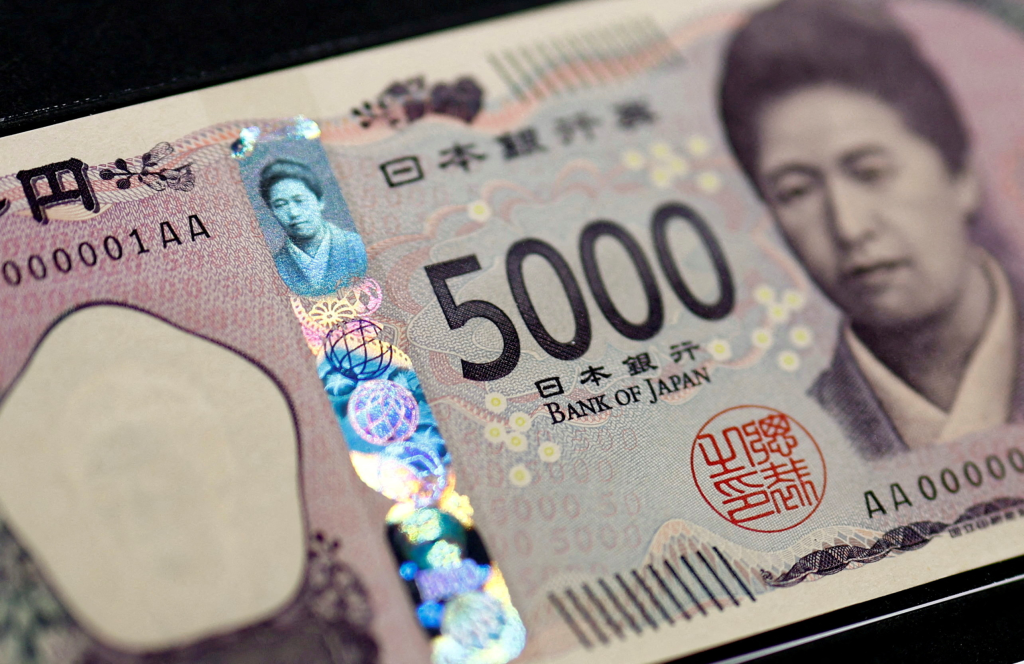The yen dropped to its weakest level against the dollar in almost three months, reviving concern that Japanese officials may act to support the currency if it keeps on depreciating.
Japan’s currency slid as much as 1.4% to 153.19 per dollar on Wednesday, paring the move in later trading to finish at the lowest level since late July on a closing basis. The drop led the pair to breach the key technical level of about 151.38, its 200-day moving average, which analysts say opens the door for further declines.
The yen’s slump comes on the back of a broadly stronger dollar amid a jump in US yields as the Federal Reserve has signaled caution about cutting interest rates. Speculation the next US administration may pursue more inflationary policies after the presidential election has also boosted the greenback.
“The yen is once again down a dangerous path, especially given that the Bank of Japan is very unlikely to raise interest rates at its meeting next week,” said Helen Given, a foreign-exchange trader at Monex. “There’s a good chance through the end of the year the yen moves back down toward the 155 handle”
Bank of Japan Governor Kazuo Ueda hinted that more interest-rate hikes are coming, saying in Washington on Wednesday that figuring out the right size and timing for further normalization of rates “keeps me awake 24/7.”
“Given the current momentum, it’s likely that the yen will weaken further and the dollar will strengthen further,” said Yukio Ishizuki, senior foreign exchange strategist at Daiwa Securities Co. in Tokyo. “If the yen continues to weaken, it is likely that the authorities will step in to restrain it.”
For Nomura International Plc, if the yen weakens further after this weekend’s general elections, this will not only raise the prospect of intervention, but may also prompt the Bank of Japan to flag at its policy meeting next week that it could raise interest rates as early as December. The risk is that Japanese Prime Minister Shigeru Ishiba’s party loses its coalition majority.
“The yen seems to be working as an adjustment valve at the moment, to ease everything that is pressuring Japan macro,” said Yusuke Miyairi, a currency strategist at Nomura.
Japan’s bonds joined the drop in US Treasuries on Wednesday, with the 40-year sovereign yield briefly rising to 2.535%, the highest since 2008. That’s still much lower than the rates on 10-year and 30-year Treasuries.



